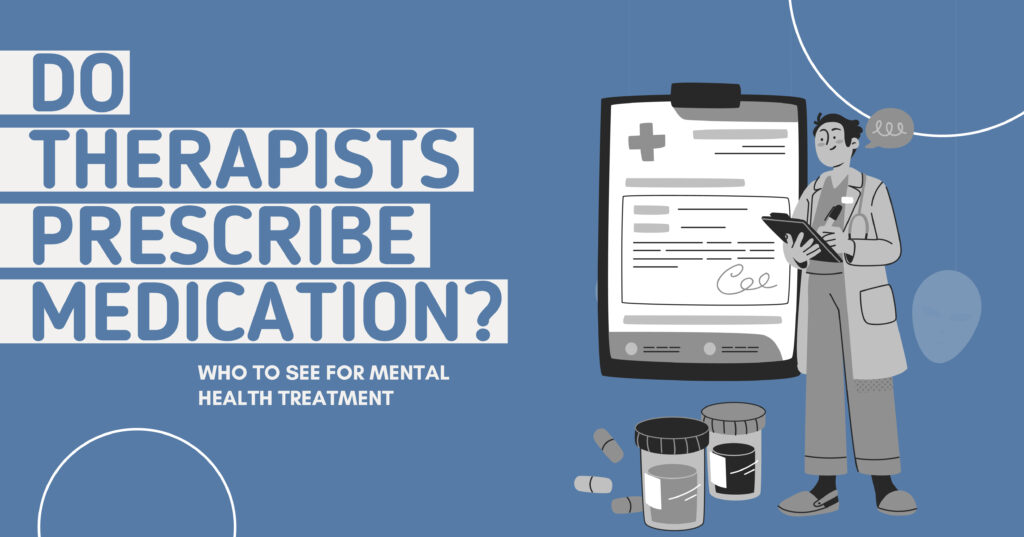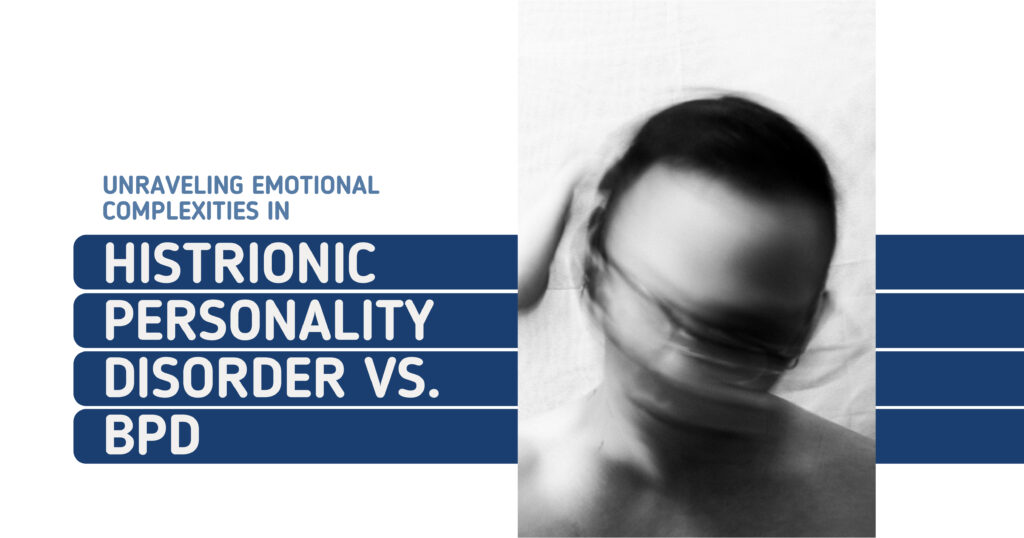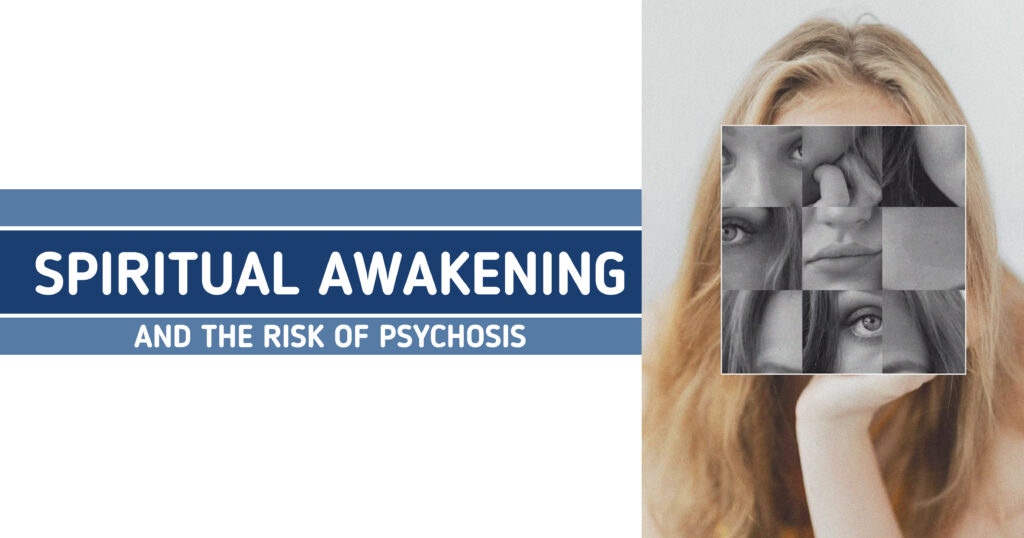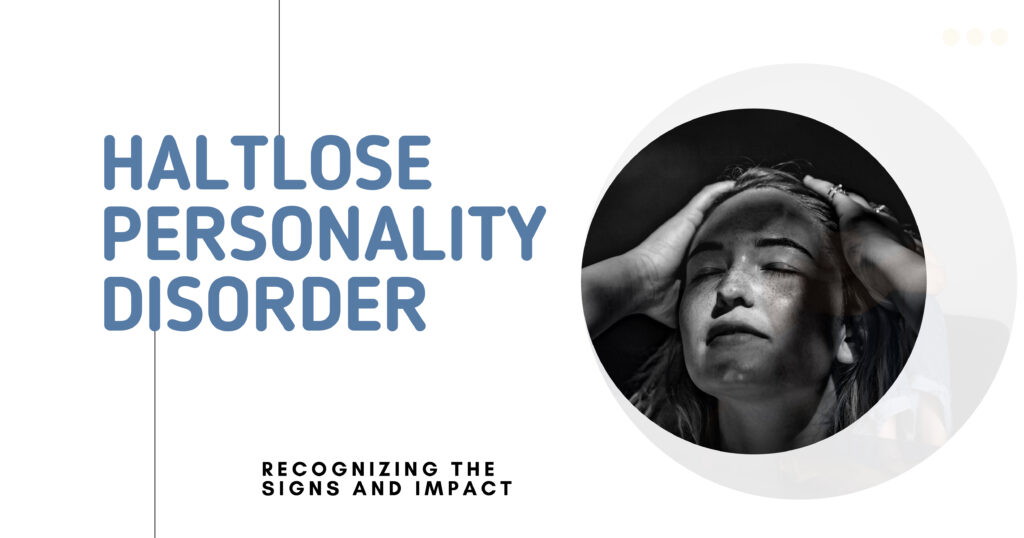When seeking help for emotional or mental health issues, a common question many people have is, “Do therapists prescribe medication?” The distinction between therapists and prescribers in mental health care must be clear because therapy specialists differ from medication experts. Most therapists, such as licensed counselors, psychologists, and social workers, concentrate on offering psychotherapy services alongside emotional support while lacking prescription privileges.
Medical doctors with specialization in mental health care function as psychiatrists while performing the role of providing mental health prescriptions to patients. The American Psychiatric Association states that psychiatrists can both create mental health diagnoses and develop procedural plans to manage symptoms related to mental health with prescribed medicines. For those wondering, “Can a psychologist prescribe medication?” the answer is usually no. Only when clinical psychologists acquire additional training and occupy any of the three states that provide strict prescribing rights, such as New Mexico, Louisiana, and Illinois, can they receive prescription privileges.
All mental health patients should grasp how therapists differ from psychologists, psychiatrists, and counselors before starting therapy. Our blog educates readers about medication prescription authority and defines healthcare provider roles, together with appropriate timing to consult psychiatrists versus therapists
Introduction to Mental Health Treatment
The field of mental health care includes diverse forms of support to assist people facing anxiety, depression, PTSD, and additional mental health conditions. A person needs thorough knowledge of mental healthcare practitioners and their educational requirements when searching for the appropriate treatment. Many people initially ask, “Do therapists prescribe medication?”, especially when symptoms feel overwhelming enough to possibly need both counseling and medical support. Several mental health professionals collaborate to provide therapeutic care and prescription medicine required by patients, although medication prescribing authority requires a specific license.
Your health decisions become more informed when you know what professionals can provide therapy along with diagnosis and medication prescription services. Each mental health specialist focuses on distinct aspects within the treatment process since therapists and psychologists provide therapy, while psychiatrists and licensed professional counselors can administer prescriptions.
San Diego Mental Health
Do Therapists Prescribe Medication?
Therapists normally abstain from prescribing medication to patients. Licenses that lead to the term therapist include LCSWs, MFTs, and professional counselors who provide structured psychotherapy services or talk therapy treatments. Certified professionals who focus on emotional processing and stress management do not hold medical qualifications, which prevents them from writing prescriptions. An assessment of medication benefits by the therapist typically leads to their referral of patients to psychiatrists, nurse practitioners, or primary care doctors who can provide prescription treatments.
Can a Psychologist Prescribe Medication?
The matter requiring deeper examination is whether psychologists are allowed to prescribe medication. Most U.S. states prohibit psychologists with their PhD or PsyD degrees from exercising prescribing rights for medications. Medical prescription authority remains unavailable to psychologists in the majority of U.S. states, but specific cases exist where it is possible. Psychologists who work in New Mexico, Louisiana, and Illinois have permission to write prescriptions after finishing extra education and achieving specific licensing requirements. The expertise of these psychologists is supported by medical doctors to achieve optimal patient results. Beyond the few exceptions of New Mexico, Louisiana, Illinois, Iowa, and Idaho, psychologists provide testing and therapy and modify behavior, but their practice excludes medical treatments..
Can a Licensed Professional Counselor Prescribe Medication?
Many people also wonder, “Can a licensed professional counselor prescribe medication?” or “Can an LPC prescribe medication?” The answer is simple: LPCs do not have permission to prescribe medication because they lack both medical training qualifications and prescription authority. When LPCs identify that clients need medication, they create referrals to psychiatrists and medical doctors who can conduct further evaluation, followed by prescription support.
Can a Clinical Psychologist Prescribe Medication?
The question, “Can a clinical psychologist prescribe medication?”, often confuses because of the word “clinical.” Clinical psychologists perform diagnoses and treatments of serious mental illnesses by using therapy and psychological assessments, yet traditional educational pathways do not offer training in pharmaceutical practices or medical prescription. Additional state-level training and certification allow clinical psychologists in selected states to prescribe medication as general psychologists do. Most state practices limit clinical psychologists to therapeutic work, and they refer patients to psychiatrists when a combination of medication and therapy appears needed.
Understanding the Role of Psychiatrists in Prescribing Medication
The medical training of psychiatrists allows them to perform mental health diagnoses and medication prescription as their specialty for providing treatment. Medical training through medical school, combined with authorization to administer psychiatric medications, makes psychiatrists different from therapeutic professionals who cannot prescribe psychiatric medications.
Psychiatrists become essential when symptoms form a severe or complicated presentation that proves unresponsive to treatment by itself. Physicians who specialize in psychiatry handle medication prescriptions and keep track of treatment side effects through their supervision of dosage adjustments, as well as by providing psychotherapy in addition to medication management. Through their medical education, psychiatrists can detect how mental health issues impact bodily wellness, which leads to complete patient treatment.
Psychiatrists can perform specific duties that distinguish their role from other mental healthcare professionals, as per the following table:
| Provider | Can Diagnose Mental Health Disorders | Can Prescribe Medication | Can Provide Therapy |
| Psychiatrist (MD/DO) | Yes | Yes | Sometimes |
| Psychologist (PhD/PsyD) | Yes | Only in certain states | Yes |
| Licensed Professional Counselor (LPC) | Yes | No | Yes |
| Licensed Clinical Social Worker (LCSW) | Yes | No | Yes |
| Psychiatric Nurse Practitioner (PMHNP) | Yes | Yes | Sometimes |
Professional psychiatrists serve as the first choice for medical assistance when therapy and medication treatment approaches are selected for patients dealing with severe depression, bipolar disorder, schizophrenia, or anxiety disorders.
When to See a Psychiatrist for Medication Management
Therapy might not serve as an adequate solution to treat specific mental health disorders. The essential role of medical expertise from a psychiatrist emerges when handling medication for these conditions. Your situation requires a psychiatrist when any of these factors apply:
- Your therapist currently advises using medication to enhance your treatment after finding unaccomplished progress through therapy.
- You develop symptoms such as hallucinations, delusions, and suicidal thoughts that prompt the need for urgent medical assistance.
- Complex mental health conditions require both therapy and prescribed drugs for successful management.
- Your doctor prescribed psychiatric medication earlier and now requests additional checks for side effect management while adjusting your medications.
- Your doctor has directed you to visit a specialist who will provide more sophisticated medication care for your mental health needs.
Psychiatrists are trained to tailor medication regimens based on each patient’s unique needs, ensuring that the treatment plan supports both mental and physical well-being.
San Diego Mental Health
Who Should You See for Mental Health Treatment?
Your selection of a mental health practitioner hinges upon which mental symptoms you experience, along with their severity level. The first choice for treating mild to moderate distress, life transitions, grief, and stress involves working with therapists who include psychologists, LPCs, and LCSWs. Such professionals deliver therapy through talking sessions while teaching coping methods that do not require medication.
You need to consult with a psychiatrist when your symptoms reach dangerous levels, with serious mood problems and persistent anxiety or suicidal thoughts, especially when medication treatment seems essential. Psychotherapy patients receive complete assessments, medication prescribing, and counseling services from psychiatrists. The most complete recovery support requires working with both a therapist and a psychiatrist, according to many treatment plans.
Your decision depends on personal requirements, although seeking medical support early from either therapy sessions or medication treatments will significantly boost your mental wellness path.
Contact San Diego Mental Health for Support
San Diego Mental Health exists to serve clients who need mental healthcare assistance because they feel overwhelmed. San Diego Mental Health guides direct clients toward appropriate mental health support, which might include therapy combined with medication management. You do not need to face mental health service confusion independently because we provide assistance at San Diego Mental Health.
The first step toward positive change awaits you at Contact San Diego Mental Health through booking your consultation.
FAQs
Can a psychologist prescribe medication?
Typically, psychologists cannot prescribe medication. However, Psychologists in New Mexico, Louisiana and Illinois, Iowa, and Idaho are a few exceptions as they are allowed to prescribe due to their specialized training and extra certifications.
Can a licensed professional counselor prescribe medication?
LPCs do not possess authorization to make medication prescriptions because their professional duties extend to therapy and counseling services. LPCs deliver therapy combined with counseling solutions, but they do not possess authorization for medical prescriptions.
What’s the difference between a therapist and a psychiatrist?
A therapist provides talk therapy and emotional support, while a psychiatrist is a medical doctor who can diagnose mental health conditions and prescribe medication.
When should I see a psychiatrist for medication?
Seeing a psychiatrist becomes necessary when your symptoms are severe, or treatment without a psychiatrist has failed, or you display symptoms needing medical care, such as hallucinations, suicidal thoughts, and mood instability.
San Diego Mental Health
What types of medications do psychiatrists prescribe?
The following are the medicines that psychiatrists prescribe:
- Antidepressants
- Antipsychotics
- Mood stabilizers
- Anti-anxiety medications
- Stimulants








